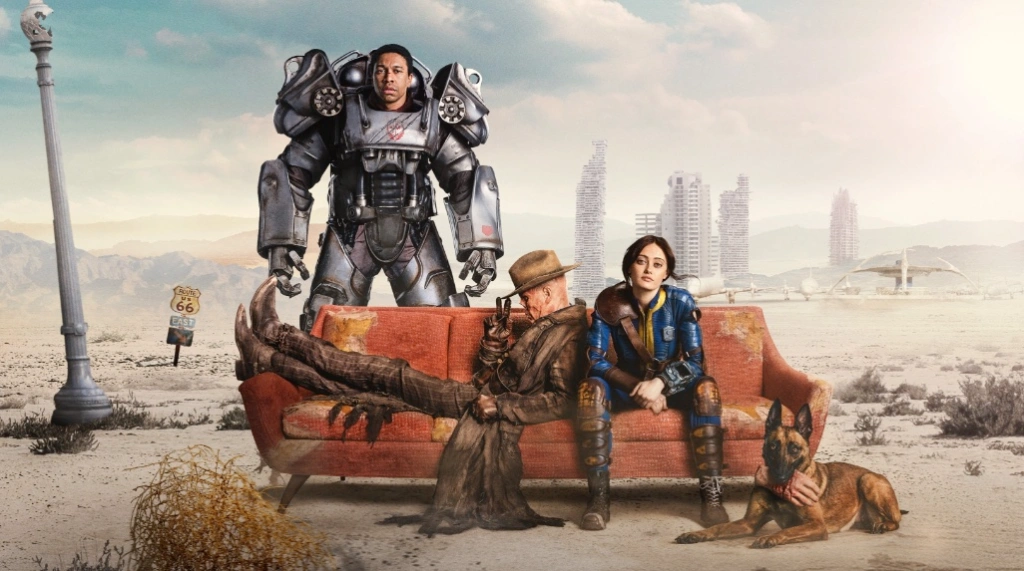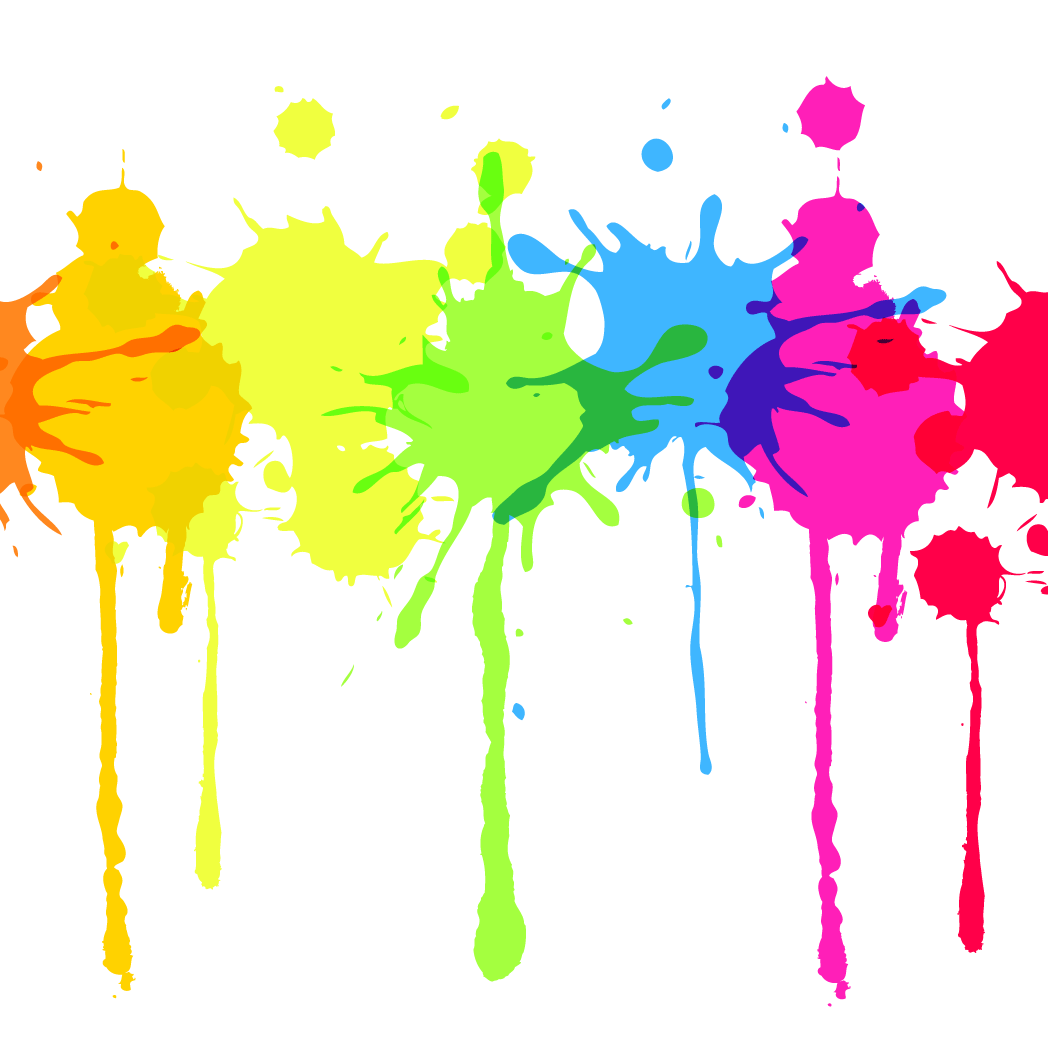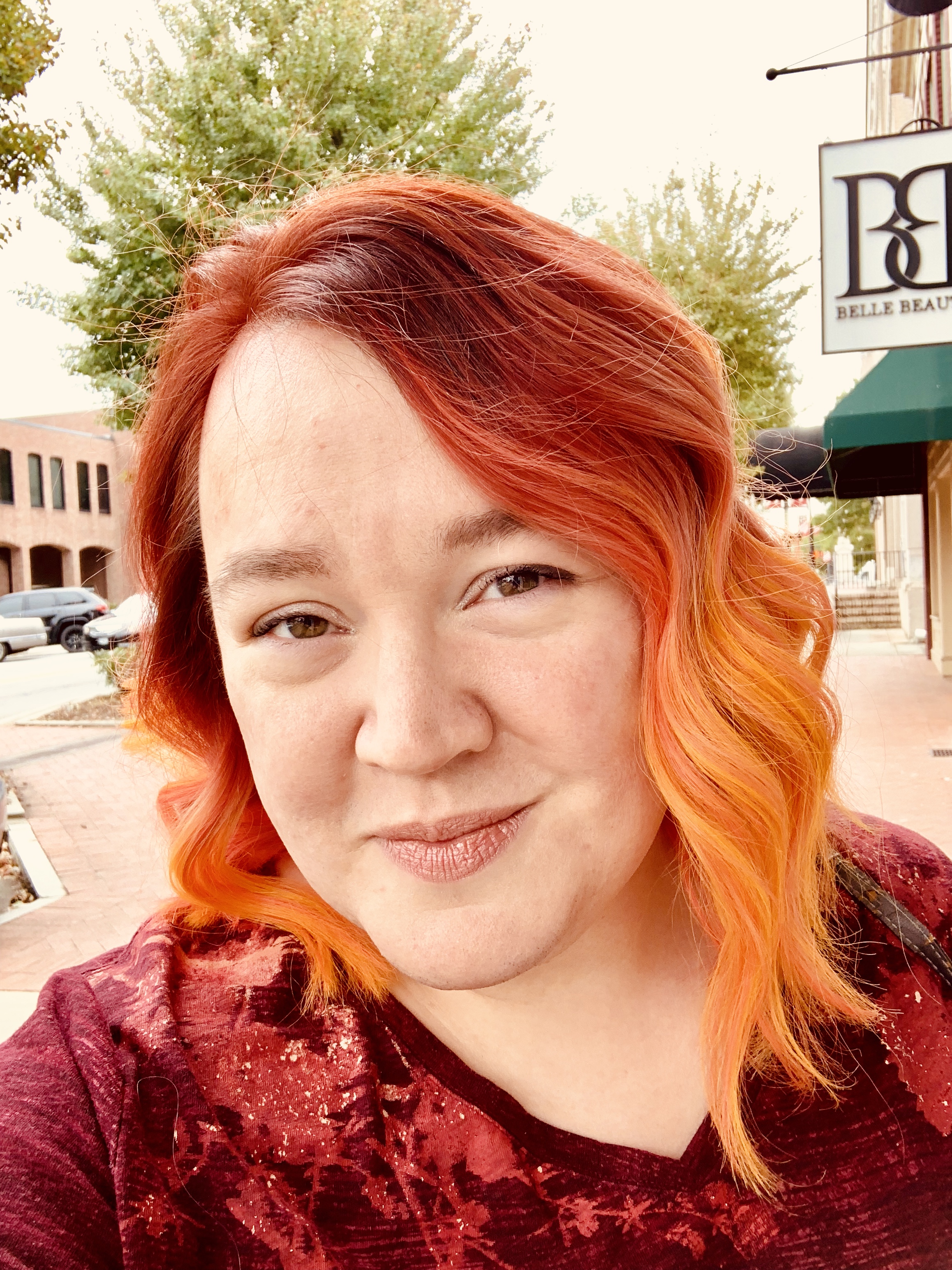100% RameyLady | No AI
I recently finished watching the Fallout series (Prime), perhaps one of the best live-action video game spinoff series I’ve ever seen, particularly when compared to the Halo series (Paramount+) — I wanted to like it so badly! — or the Witcher (from Netflix) which cannot be rescued even by having the absolutely most perfect actor for Geralt that’s ever walked through a casting director’s door in Henry Cavill.
In fact, the only other live-action game series that’s even on par with Fallout is The Last of Us (HBO), which ran last year and won multiple awards. That story is a faithful retelling of the narrative of its base game, gently guided by the game’s narrative director at Naughty Dog, with a highly regarded TV writer doing the adaptation. That third episode (the one about Frank and Bill) is in my top-10 list of “best single episodes I’ve ever watched of any show ever.”
I do think TLOU stands apart for it extreme faithfulness in telling the same story as the first game, so it was more of a “coming to life” of that plot rather than a new story about the broader world. If you played the game, you know there are differences, but the overarching plot is the same. I wish more games could be converted to TV so people could experience the richness that some of these stories have to offer, but simple 1:1 conversions lose something essential: player agency. What makes a game a game? I’d argue that it’s giving a player true control over how and when things happen, or at the least, making the player participate in the events of the story in the way that a passive medium like TV or film can never attain.
I’ll place the game-based animated series in their own category and exclude them from this discussion for now — several have been absolutely fantastic at telling new stories. On my mind: the Cyberpunk 2077 anime Edgerunners drawn by Trigger, and Arcane [League of Legends], animated in a jaw-droopingly gorgeous style by a French studio. I literally cannot get over how incredible every frame is. Oh, and the Castlevania origin retelling as well. All 3 of these are from Netlflix, who honestly put out a lot of trash, but occasionally that do hit a true home run. And each of those animated series are top of class in story and presentation, if you’re looking for something interesting to watch these days.
But I digress.
What is it about Fallout that causes it to truly rise above its peers, both in the video game adaptation category and even just “series in general”? I’ve been chewing on that question since I finished watching it — it was an easy choice for a “binge watch” and I applaud Amazon for dropping all 8 episodes at a time.

Story is King
First, Bethesda Games Studios wisely held onto the rights of the Fallout franchise until the right partner came along. Todd Howard, executive producer at the studio and the production director of Fallout 3 and 4, made a wise choice of insisting that any attempts to tell a Fallout-style story be handed to the right writer. And wow, they did they land a perfect partner: Jonathan (aka “Jonah”) Nolan, who is both 1) an incredibly accomplished screenwriter with a remarkable list of hits for his director-brother Chris like The Dark Knight and Interstellar, not to mention Westworld, and 2) a true fan of the games, a man who has actually played through the narrative structure of what he wanted to write about.
In parallel, TLOU likewise had an absolutely top-talent writer in Craig Mazin who also wrote Chernobyl (you really need to watch it). He, too, loves the game and worked closely with the game’s director, Neil Druckman, on integrating thoughtful changes to the game’s plot into the writing of the episode to make it work for TV and to bring out some much needed themes of hope and love in an otherwise dark series about survival in a post-apocalyptic wasteland. I won’t say more here so as not to spoil the story, but many of the things that I will go on to praise in Fallout are present here as well.
Second, the story beats in Fallout are *chef’s kiss* perfect: We follow 3 primary narratives which together drive forward the overall plot. The season as a whole, shaped by Nolan, has a clear through-line which is individually supported by how every individual scene also has its own arc and a rise-and-fall shape which makes every moment on screen something you’re interested in seeing.
Further, the casting in this show is absolutely brilliant. I cannot say enough good things about the performances, particularly from Walton Goggins as The Ghoul, an echo of a 1950s traditional American “cowboy” as seen on the silver screen in that era, but now completely deformed both inside and out. (I won’t spoil this, and you shouldn’t go poking around without watching or you’ll have his story surprises ruined for you.) He is paired with outstanding leads like Ella Purnell and Aaron Motel, two early-career actors whose careers I hope will get a big push out of their involvement here. Strong experienced actors like Kyle MacLachlan fill out key supporting roles, and the entire cast is truly perfect.
Third, the Fallout games have always ridden a line of satire through American nationalism and jingoism, supercharged by memories of just how bad the 1950s Red Scare and atom bomb tensions were. Heck, I was a kid in the 1980s and many schools still practiced nuclear bomb drills, as if literally anything was going to rescue us from what these games suggest would have been our fate. Although the games rarely take their story into a direct commentary on the bad marriage of the military and capitalism, Nolan makes this theme a significant but quiet part of his writing for the show. In a world where Google is now firing the employees who protested the company’s billion dollar contract to develop military-grade applications for Israel, I’d say we could use more critique of the military-industrial complex that Eisenhower tried to warn us to avoid.
Nolan also uses the story itself to present the background narrative from the games, which is roughly that a shadowy American company, Vault-Tec, built underground nuclear survival bunkers all across the US ahead of a horrific nuclear war in 2077 which people thought had wiped out all of surface-dwelling humanity. As each of the vaults unsealed roughly 200 years later to “repopulate the earth” (and I think the religious echoes there are intentional), people discover that humans did survive the destruction and live a hard-scrapple existence in the irradiated Wastelands. Those people now eke out something like a life by foraging old materials from dead cities and surviving horrific monsters — mutated creatures and humans alike. The surface is very much alive, it’s just not a place where one wants to spend much time.
Nolan doesn’t have to dump exposition on us from the mouths of his characters. He follows the classic advice to “show, not tell” in his writing, and he hired excellent show-runners to build out a writer’s room who brought his overall story beats to life in a new story which is firmly grounded in the lore of the games (and considered canon by Bethesda) without resorting to retelling us the major plots of any of the Fallout games.
I also appreciate that Fallout gives a satisfying conclusion to this first season while clearly setting up multiple plot points for season 2. I hate it when TV writers end on a cliffhanger in an attempt to force a second season; let a strong story do that work for you.
I do think Fallout was uniquely positioned for a good TV adaptation: The games are lighter on story than you’d think, despite requiring many hours to play through. Most of the joy in a Bethesda game comes from a feeling of free exploration — they were doing “open world” long before it was “the hotness” in gaming — and from stumbling into interesting side stories that are particularly well-crafted and fun to experience. So it should have been a no-brainer that turning that overall world-building into the host for a brand new story which can echo the best of the game’s themes while also creating new stories would be a winning formula.
That said, I give a ton of credit to Bethesda for holding out until they got the best possible writer, and for Nolan for producing an incredible overall story for this series. I literally cannot wait to see season 2; this is one of my favorite fun-watch series of the decade thus far.
…plus a love of the material
In contrast, the Halo and Witcher series have struggled with bad plot design and an overall failure to represent the source material with any true fidelity. That absolutely kills me as a mega fan of both of those game series. Neither show writer (or team) seems to care about the actual lore of the worlds they’re supposed to be adapting.

I had so much hope for the Witcher given the strong casting and the enthusiasm of its head writer, Laura Hissrich. She was on Twitter for months ahead of production, talking about her excitement for the story and eager to get things rolling. I will say that The Witcher‘s first season IS a solid watch; she was pulling from some of the best material from the books by Sapkowski which are vastly different than the story built by CDPR, the Polish studios behind the award-winning games. (The Witcher 3 is hands-down probably the best game story I have ever played. I even wrote about it.) If you can master the fact that there are 3 totally different timelines happening at one time in the first season of the show, signaled mostly by the armor that Geralt is watching, the first primary story arc is actually really solid. It’s just that everything goes off the rails in season two, as drastic alterations to key characters from the game or books make no sense other than change for the sake of “plot” and sensationalism.
What makes the Witcher work as a narrative is, to my eyes, the Eastern European “soul” of its story. Witchers are mutated humans created by mages in this alt-medieval world where “something” happened a few centuries back to open a portal between our universe and another one where magic abounded and monsters roam. The job of a witcher in this world is to kill the monsters who would otherwise kill humans. They are a guild like any other medieval profession; they travel the countryside alone, looking for work, and require payment for their services. The actual story of The Witcher, in both Sapkowski’s novels and the games, is a much deeper and thoughtful pursuit of one of these men for a home and a family. Witchers live a long time, and they are far more likely to die from a monster than in their beds. Combining the life of a man of (helpful) violence with a natural drive for a family (witcher mutations make them infertile) creates a story world that’s rich with side narratives and a driving motivation to see Geralt’s quest to its end.
Hissrich does attempt to keep that basic plot line in the show, but she and her team fumbled so much of the execution — particularly in season 2 — and changed so many elements in season 1 in an attempt (I guess) to flesh out the book’s loose story structure with details drawn from the very different game stories + the writers’ own ideas (I guess?). Single stories such as the opening episode of season 1 are built on some of the best material from Sapkowski’s short stories, but his books are hard to translate to screen. (I do recommend the books; they are an odd duck of a fantasy series; one of the few “fantasy” novel series I can point to which don’t fall into the very tired tropes and traps of most fantasy writing on the shelves right now.)
Mostly, they just seem like people who didn’t really want to tell a Witcher story at all. Now it’s all political and magical intrigue and fetch-quests for Geralt and Ciri and Yennefer, with very little of the heart that drives both the games and the books, and none of the “old soul” that Sapkowski puts into this writing. I’ve often said that a Polish writer of a dark and grim fantasy novel makes sense; Poland has been run over by every major power in Europe and used as their field of war so many times that they seem, as a people, just to expect someone to walk in and kick them in the teeth. He puts that mood into his writing, and the game designers – also Polish – do a good job of keeping it. Their latest game and media in the Cyberpunk 2077 series, are built on the works of an American, but a future where corporations own everything and it’s all terrible unless you’re filthy rich just seems to me as the natural translation of that weary Polish soul into the future.
Story transformations are hard
And what of Halo?

Again, how do you fail to write a good narrative for one of the best-selling game and books series in its genre? Halo didn’t invent the first-person shooter game or the military sci-fi genre, but one could argue (and I do) that it cemented FPS military sci-fi into the Western consciousness. Bungie had a literal home-run of a game in 2001. I’ve probably played Halo: Combat Evolved 20 times through by now (it’s relatively short and extremely fun on couch-co-op with my husband.) It still holds up as a fantastic first-person shooter. It draws on ideas from classic science fiction, the writers who invented the grand themes of humans battling aliens for the soul of our galaxy, and the individual men and women dropped into horrific war and told to hold the line and survive.
Perhaps the downfall of Halo as a TV series lies in the strength of the game’s main character. As a player, you were nearly always (with only 2 game exceptions, maybe 2.5) playing as Master Chief, or John 117, the super-solder who was physically and probably genetically altered after being kidnapped from his family as a child. He’s now one of the few remaining Spartan solders, who are superhuman when wearing their armor (note the parallel to the Brotherhood of Steel power armor in Fallout) and devoted to protecting humanity anytime he’s in the field. As a player, you LOVE John. You hear Master Chief non-stop. His voice is iconic at this point, a gravelly baritone voiced by a (former) radio DJ. And as a player, you inhabit John’s body without ever seeing his face. You don’t “make decisions’ in Halo games to change the shape of the narrative, as you might in Fallout or The Witcher; instead, you take Master Chief out to give those bad guys the ass-kicking they deserve in epic battles that are super-fun to play.
And perhaps that right there is a kernel of the problem that writers face when adapting video games. I’m not going to let the Halo TV writers off the hook here – this is some of the worst TV writing I’ve seen in a while. The pacing is awful and slow; the narratives are confused as if the writers read some of the accompanying book series but forgot major points, and we’ve gone nearly two seasons now without actually doing anything on the eponymous “halo” rings which are central to the overall plot.
But I do sympathize with people who are asked to take a story which gives a player such a feeling of affinity for a character whom you’ve lived hundreds of hours with and turn that into a passive story to watch.
Therein for me lies one of the biggest weaknesses of game-to-screen adaptations: you have to pick the correct game. It has to be a “right fit” kind of story.
By focusing on Master Chief in the series, the Halo TV writers put themselves in the position of telling his story, a story which is already so well known by fans yet so unfamiliar to anyone outside the games. You have a hyper-focused fanbase but a very general audience who don’t know any of that stuff or care. And the director must ask their writers to create something that rides a middle line there, one with enough humanity for us to stay engaged with it without being able to put us in the driver’s seat.
Could the Halo writers have told a better, adjacent story (similar to how Fallout has gone, or the animated series I mentioned earlier)? Yes. Or they could have followed the books a bit more. Or they could have gone The Last of Us route and told a single story that closely followed one of the game narratives as a launching point – a proof of concept to make high-profile military sci-fi in that universe from which to tell other related stories.
Written by committee
I’ll end with this point, as this is already too long of a ramble: I feel that the best shows we’re seeing are helmed by a single, outstanding writer who chooses to be surrounded by other great writers who 1) know and love the material they are adapting and 2) honor that material with a loyalty driven by a fan’s heart instead of a paycheck.
I know TV shows exist based on writer’s rooms. There’s been scuttlebutt that the writers of the Witcher series hate the books and games; who knows if that’s true (it sounds like it’s not) but — watch the series if you know the game or books and tell me you don’t also think there’s a ring of truth there.
Is this a case where, once again, capitalism ruins everything it touches?
How does a writer even get a job these days? And if you’re one of the very, very few lucky ones to nab a spot in a writer’s room, where you finally have your ONE “big shot’ to be successful and lay a foundation for a career that might actually keep a roof over your head, how hard must it be to set aside the fun creative ideas you’ve been simmering on for years and devote your creativity to some other person’s story vision?
How much of the bad writing we’re seeing is simply “writing by committee” where “everyone owns it” turns into “no one owns this,” stripping the soul from the story? My guess is a lot.
My favorite series are helmed by a single visionary, someone who is skilled at story-writing and also in love with the story they’ve been asked to tell. I’d like to think there are enough of these skilled storytellers to go around. I just wish the studios would hire them.
Perhaps the stunning success of TLOU and Fallout will nudge some game directors and studio heads to be cautious when someone asks them for the film rights. Wait for the “right” writer, someone who already tells the type of stories you think your game would pair well with.
Series listed in this post:
- Fallout – Amazon Prime (1 season, season 2 in development)
- The Last of Us – HBO (1 season, season 2 in development)
- The Witcher – Netflix (4-5 seasons; new actor coming in for Geralt for season 4)
- There are spinoff series for the Witcher on netflix – there’s an animated one that I actually really liked. It’s The Nightmare of the Wolf and deals with the origins of the witchers. The other series, a live action one called Blood Origin, is genuinely terrible.
- Halo – Paramount+ (2 seasons thus far)
- Halo: Forward Unto Dawn (currently on Peacock) is a small-budget web series created as part of the marketing campaign for Halo 4, and it is actually quite good. I recommend it if you’re interested in the Halo world.
- Halo: Legends is a string of 7 animated shorts made around 2010 and they are just fantastic. Bungie was sponsoring these, I think, as part of their game PR for new releases, and I really love the stories and the art styles. You can find them online in many places.
- Cyberpunk 2077: Edgerunner (Netflix) – 1 standalone season
- Arcane: A League of Legends story (Netflix) – 1 season thus far
- Castlevania (Netflix) – a few short seasons




Got a comment?